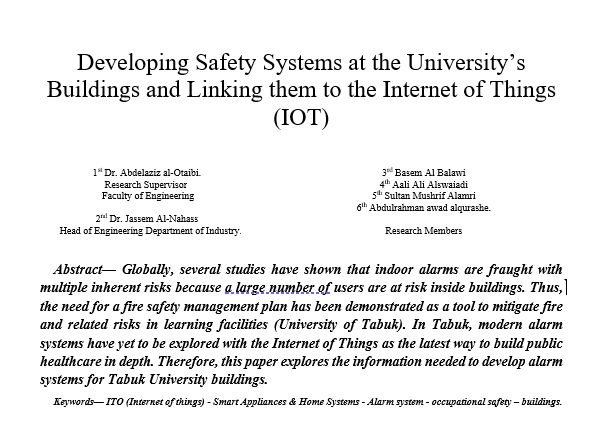ادارة وتشغيل شبكة المياه في مدينة غزة في حالة الطوارئ pdf
ملخص الدراسة:
Infrastructure management is a very critical thing for any country, it reflects the powerful at planning and decision makers level for the best way to use infrastructure to serve the system at any city. The objective of this research is the management of water distribution network at emergency cases such as wars, disasters and any sudden problem in the system of Gaza city. The methodology started with collection of data from the concerned authorities about the existing water network in Gaza city and collection of reports from the affected areas in an emergency assembly (2014 war) and the problems that occurred during the crisis. In addition the work of the network during the crisis and the extent of damage were assessed through field visit. The methodology also depended on two questionnaires: the first questionnaire is intended for professionals in various organizations and decision-makers, it aimed to study the factors affecting water distribution network to develop network and the impact of activities on the network efficiency. The second questionnaire is intended for population in different zones in Gaza city such as (Al-Nasser, Tal Al- hawa, Al- Zaitoon), to identify network problems during the crisis, and to study alternatives for the development of high quality emergency plan. Operators of water distribution network in the municipality of Gaza were also informally interviewed. Results showed that the most influenced factor on water distribution network at emergency cases in Gaza city was equipment availability. In addition, the availability of electricity is also influence the activity of the water distribution network in emergency cases. As for specifying the size of the problem in the selected areas of Gaza city during the crisis, the results were nearly equal in the selected three areas. The highest rate was in Tal Al-hawa where the time water cuts for the houses were large and continue to water outages more than 9 days increased by (62.5%) and in the case of the arrival of the municipal water was the continuation of water connected from 2-3 hours by (62.5%), the degree of municipal cooperation in water delivery was very few (non-cooperative) by (87.4%) in all areas and out an emergency plan build on areas of the Gaza city. The study showed that most of the people in all selected areas used the fresh water as alternative when war the water supply was stopped during 2014 ware. The study recommends that municipalities should coordinate with the concerned international institutions to update the database that can be accessed through any helpful party and be prepared for any emergency case by technical staff and equipment available. The municipalities should prepare a water use plan in any emergency case.
توثيق المرجعي (APA)
خصائص الدراسة
-
المؤلف
Abu-zarifa, Samar Suliman
-
سنة النشر
2016
-
الناشر:
الجامعة الإسلامية - غزة
-
المصدر:
المستودع الرقمي للجامعة الإسلامية بغزة
-
نوع المحتوى:
رسالة ماجستير
-
اللغة:
English
-
محكمة:
نعم
-
الدولة:
فلسطين
-
النص:
دراسة كاملة
-
نوع الملف:
pdf




